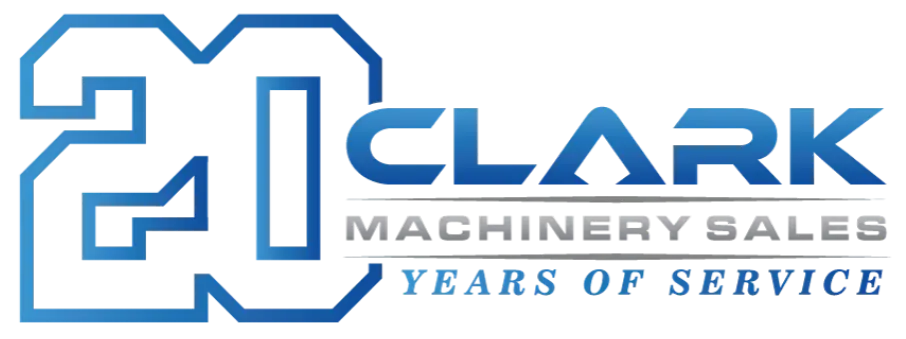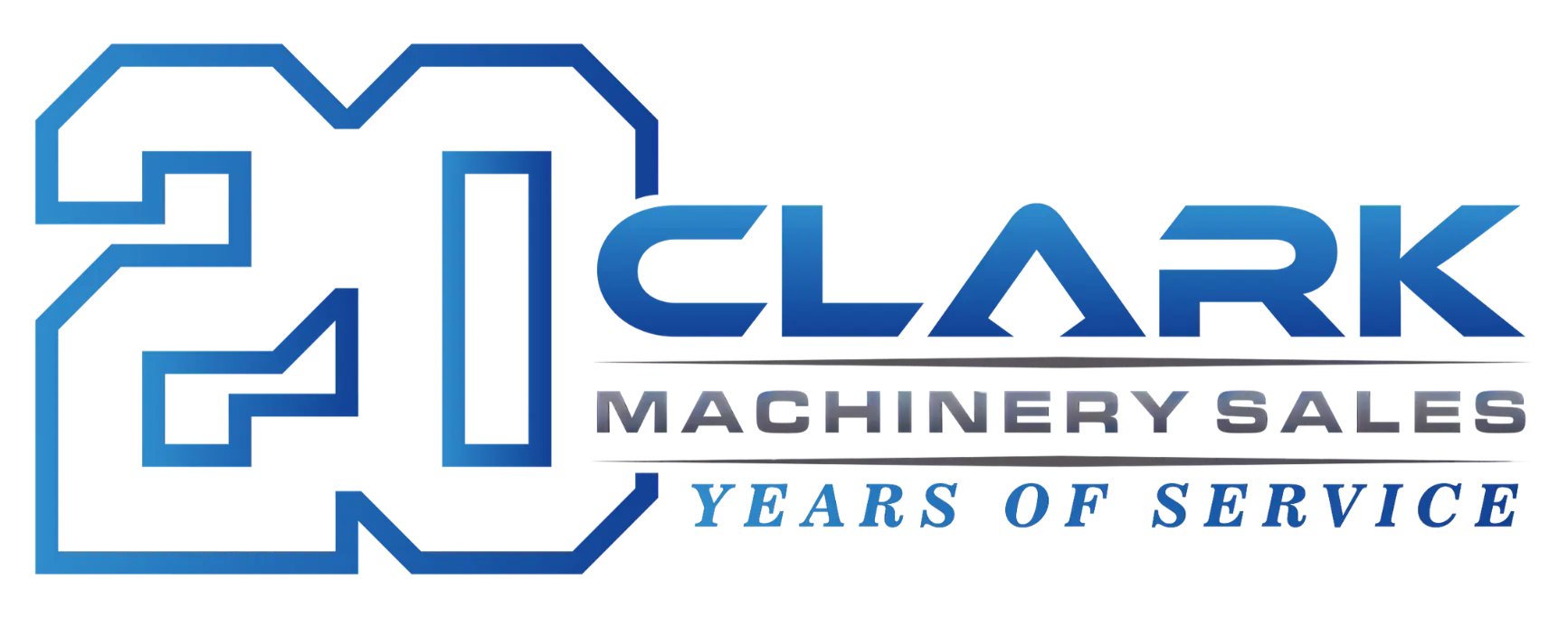What is CNC Machining?
CNC machining is a process used in manufacturing that involves the use of computers to control machine tools. Tools that can be controlled in this manner include lathes, mills, routers, and grinders. The CNC in CNC machining stands for Computer Numerical Control, which means a computer converts a design produced by Computer Aided Design software (CAD), into numbers. These numbers can be considered the coordinates of a graph and they control the movement of the cutter. This process allows for precision machining of metals, plastics, and other materials, which is vital in creating intricate shapes with a high degree of accuracy.
Types of CNC Machines
CNC technology spans a variety of machines that specialize in different forms of machining, suitable for a vast range of materials and production needs. Here at Clark Machinery Sales, we provide an extensive selection of CNC machines. Understanding the various types of CNC machines can help you make an informed purchasing decision based on your specific machining requirements.
- Vertical Machining Centers (VMCs): Vertical Machining Centers feature a vertical spindle orientation. This means the cutting tool in a VMC is oriented vertically, making these centers most suitable for die sinking work. With a vertically oriented spindle, tools stick straight down from the tool holder, and often cut across the top of a workpiece. They're predominantly used for milling, drilling, and tapping functions and are known for their ability to achieve precise deep cuts and the fast processing of large pieces.
- Horizontal Machining Centers (HMCs): Unlike VMCs, Horizontal Machining Centers have a spindle positioned horizontally, which is beneficial for machining workpieces that are bulky or heavy. This setup allows for the use of gravity in facilitating material deposition, including chips removal, thus minimizing interference with the machining processes. HMCs are highly efficient for high-volume production projects, providing rapid production rates and excellent dimensional accuracy.
- Universal Machining Centers: Universal Machining Centers are extremely versatile and flexible, capable of performing multiple machining processes including cutting, milling, and drilling with precision. These machines can handle various orientations—parts can be rotated to different positions and angles during the machining process. This adaptability makes them ideal for complex or intricate parts and prototypes that require precise specifications over multiple axes.
- CNC Lathes 2-Axis: 2-axis CNC lathes are highly effective for fully automated cutting operations that involve symmetrical machining along two axes. These lathes are particularly effective for producing simple parts like cones and cylinders. They provide excellent surface finish, precision, and operational efficiency with their straightforward setup and automated controls.
- CNC Lathes Multi-Axis: Multi-axis CNC lathes include additional axes beyond the standard 2-axis, offering greater flexibility and the ability to machine complex geometries without the need for multiple setups. These machines are ideal for producing intricate parts with tight tolerances and are essential in industries requiring high precision such as aerospace and medical technology.
- Swiss Screw Machines: Swiss Screw Machines, also known as Swiss CNCs or Swiss Automatic Lathes, specialize in the precise production of small, intricate parts. They are perfect for projects that require extreme accuracy and precision, such as manufacturing medical components. The name "Swiss" implies the technique of supporting the workpiece with a guide bushing, offering additional stability and accuracy by minimizing deflection and vibration.
- Vertical Mills: Vertical Mills are favored for their ability to handle large components including casting, plates, and fabrication. With a cutting tool that moves vertically, these machines are straightforward and generally less complex than CNC lathes. They are particularly useful for projects requiring the milling of heavy workpieces.
Each type of CNC machine offers specific advantages and is suitable for various applications. Choosing the right CNC machine involves understanding the material characteristics, production volume, and the complexity of the designs being produced. At Clark Machinery Sales, we not only offer a wide range of CNC machines for sale but also provide expert advice to ensure our clients select the best machine for their needs. Whether you need a simple 2-axis CNC lathe or a complex 5-axis CNC machine, we have the inventory and expertise to boost your production with cutting-edge technology.
What Does CNC Machine Stand For?
CNC stands for Computer Numerical Control. This highlights one of the most significant benefits of CNC machines: their ability to move and operate tools across various axes with extreme precision based on numerical codes programmed into the machine’s computer.
What Does a CNC Machine Do?
A CNC machine automates the machining process which traditionally required operator input at each step. It uses a coded programmed instruction and executes these instructions to precisely remove materials from a stock piece, known as the workpiece, achieving accurate shapes and dimensions. These machines are used in various operations, including cutting, milling, turning, and drilling—all without direct manual intervention from a CNC machine operator.
- CNC Milling Machine: Utilizes rotary cutters to remove material from a workpiece by advancing (or feeding) in a direction at an angle with the axis of the tool.
- 5 Axis CNC Machine: Provides cutting along five different axes simultaneously, greatly reducing setup time and improving precision across complex geometries.
- CNC Machine Router: A type particularly good for cutting softer materials like wood, plastic, and foam.
- Metal CNC Machine: Specifically optimized for precision machining of metal components.
How Do You Use a CNC Machine?
Operating a CNC machine involves several key steps:
1. Designing the CAD Model: This is the blueprint of the physical object that you want to create. You can design this model within any CAD software.
2. Converting the CAD File to a CNC Program: After the design is finalized, the CAD file is converted into a CNC program (typically G-code), which will dictate the actions of the machine.
3. Setting Up the Machine: This involves preparing the CNC machine for operation, including fixing the workpiece onto the machine, installing the necessary tools and cutters, and configuring the settings.
4. Executing the Machining Operation: Once everything is set up, the operator starts the machine and monitors the operation to ensure everything runs smoothly.
Clark Machinery Sales Is The Best Place To Buy & Sell Used CNC Machines
CNC machines revolutionize how we create intricate parts and components with precision, efficiency, and minimal waste. Whether you are in the market for a used CNC machine for sale, a small CNC machine, or even other industrial equipment, Clark Machinery Sales offers a comprehensive range of products to meet your needs.
Explore our diverse assortment, including CNC machines for sale at competitive prices and realize the potential of precision machining at your fingertips. Our expert team is ready to assist you in finding the perfect CNC milling machine, 5-axis CNC machine, or any other CNC machine your project might require. Visit our CNC inventory today to advance your manufacturing capabilities!

